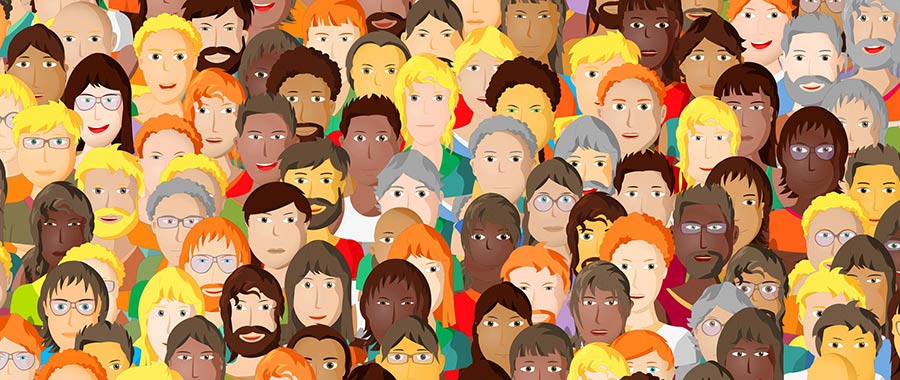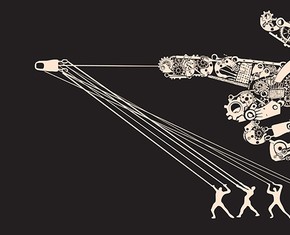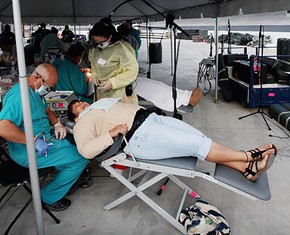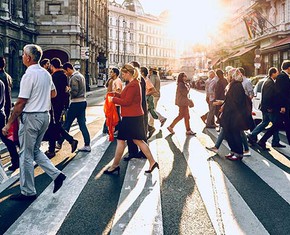The views expressed in our content reflect individual perspectives and do not represent the authoritative views of the Baha'i Faith.
Baha’is throughout the world have been “doing” social development since the very earliest days of the history of the religion.
Baha’u’llah indicated that he considered his mission to humanity to have a two-fold purpose: the spiritual development of the individual, and the social development of society towards peace and prosperity:
… the purpose of Him Who is the Eternal Truth hath been to confer everlasting life upon all men, and ensure their security and peace … – Gleanings from the Writings of Baha’u’llah, p. 115.
As a result, the earliest Baha’i communities in Iran and elsewhere had a focus on social development: they built schools to bring modern education to even remote villages; they built facilities to improve the health and hygiene of their society; and they made great strides in advancing such issues as the promotion of the social role of women and the abolition of prejudice.
It was however, a letter of the Universal House of Justice dated October 1983 that gave a much greater impetus and focus to social development:
The oneness of mankind, which is at once the operating principle and ultimate goal of [Baha’u’llah’s] Revelation, implies the achievement of a dynamic coherence between the spiritual and practical requirements of life on earth. …
This challenge evokes the resourcefulness, flexibility and cohesiveness of the many communities composing the Bahá’í world. Different communities will, of course, perceive different approaches and different solutions to similar needs. Some can offer assistance abroad, while, at the outset, others must of necessity receive assistance; but all, irrespective of circumstances or resources, are endowed with the capacity to respond in some measure; all can share; all can participate in the joint enterprise of applying more systematically the principles of the Faith to upraising the quality of human life. The key to success is unity in spirit and in action. – The Universal House of Justice to the Baha’is of the World, 23 October 1983, Social and Economic Development.
From that time on, social and economic development became part of the program of the Baha’i community. In the period between 1983-1996, most Baha’i development work did not, however, differ much from the development work of governments, NGOs and UN agencies. Of course the Baha’i projects did have some specifically Baha’i orientations—for example, they often concentrated on education and advancing the social position of women, but often the methods they used for advancing these goals were not substantially different from other agencies pursuing the same goals.
Since about 1996, however, a new paradigm of Baha’i community life has emerged. Within this framework, Baha’i development efforts have been re-conceptualized so as to bring them into closer coherence with the Baha’i teachings. The new paradigm involves taking practical steps to build communities that are structurally and functionally different from those that most of us live in today:
While eschewing partisan political activity, Baha’is are to vigorously engage in constructive public discourse and in a wide range of social endeavours aimed at the betterment of the world and the progress of their respective nations. They undertake such activities with humility, discernment and respect for prevailing laws and social conditions, in a spirit of learning and in collaboration with like-minded groups and individuals, fully confident in the power inherent in the principle of unity in diversity and in the efficacy of mutual aid and cooperation. – The Universal House of Justice, from a letter to an individual, 22 January 2010.
This involves a movement away from the hierarchical, hegemonic, patriarchal contemporary societies, with their inherent and inescapable competitiveness and conflicts, and a movement towards communities built on a Baha’i-inspired model of cooperation and collaboration, where decisions are made through a consultative process that involves everyone.
Baha’i communities around the world currently offer a training program, free and open to everyone, that helps to build within the individual the capacity to think and act in new ways to bring about such a society. This program helps everyone involved in it to build up moral capacity, virtues, an ethos of service and a posture of learning:
When you love a member of your family or a compatriot, let it be with a ray of the Infinite Love! Let it be in God, and for God! Wherever you find the attributes of God love that person, whether he be of your family or of another. Shed the light of a boundless love on every human being whom you meet, whether of your country, your race, your political party, or of any other nation, colour or shade of political opinion. Heaven will support you while you work in this in-gathering of the scattered peoples of the world beneath the shadow of the almighty tent of unity.
You will be servants of God, who are dwelling near to Him, His divine helpers in the service, ministering to all Humanity. All Humanity! Every human being! Never forget this! – Abdu’l-Baha, Paris Talks, p. 38.
















Comments
Sign in or create an account
Continue with Googleor